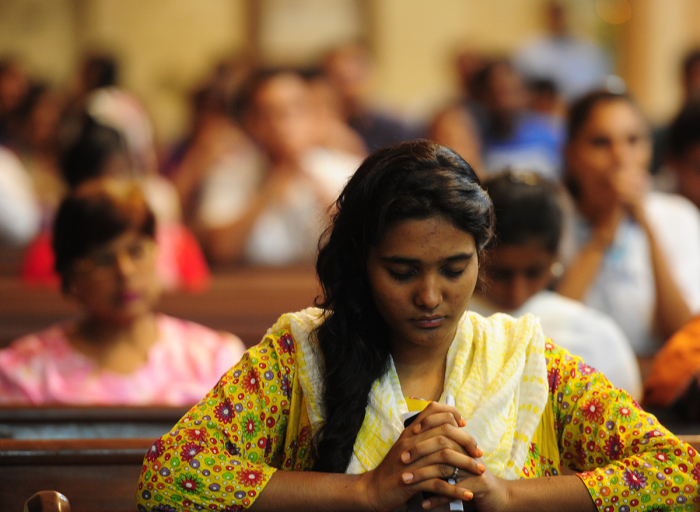US government watchdog warns of 'systematic' threats to religious freedom in Pakistan

A United States government watchdog is recommending that the State Department once again designate Pakistan as a Country of Particular Concern (CPC) for what it calls ”systematic, ongoing, and egregious” violations of religious freedom and a "growing intolerance for religious diversity."
According to a new report from the U.S. Commission on International Religious Freedom (USCIRF), a recent spate of attacks targeting religious minorities in the Muslim-majority country underscores a “growing intolerance for religious diversity fueled by extremism and existing problematic Pakistani legislation.”
"USCIRF has continued to recommend Pakistan be designated as a CPC since 2003 and the State Department has done so since 2018," USCIRF Commissioner Sharon Kleinbaum told The Christian Post. "The State Department re-issues these designations each year.”
Christians, along with members of the Shi’a Muslim, Ahmadiyya Muslim, Hindu and Sikh communities, face what USCIRF describes as “aggressive societal discrimination often propagated by extremist rhetoric,” often due to the Pakistani government’s failure to protect these minority groups.
Such discrimination and persecution include accusations of blasphemy, targeted killings, lynchings, mob violence, forced conversions, and the desecration of their houses of worship and cemeteries against religious minorities or “anyone who interprets or practices their faith differently from the majority.”
"As a country created for a group seeking religious equality and representation, Pakistan has a strong obligation to protect the rights of religious minorities and those of differing faiths or none at all," Kleinbaum said.
USCIRF’s Freedom of Religion or Belief Victims List highlights 55 individuals who were detained or imprisoned on blasphemy charges in Pakistan.
Under Pakistani law, those accused of blasphemy face violence, imprisonment with limited opportunity for bail, and even death, according to USCIRF.
One such case involved Tabitha Gill, a Christian nurse who was accused of blasphemy by her colleagues and was beaten and tortured by hospital staff in Karachi in January 2021.
“Though the government has publicly condemned mob violence, it has done little to protect religious minorities or provide justice,” the report said.
The report also highlighted the threat of abduction, forced conversion to Islam, rape and forced marriages of religious minority women and children, particularly from the Christian, Hindu and Sikh faiths.
According to USCIRF, last December, the Sindh High Court returned custody of a 14-year-old Christian girl who was abducted, forcefully married and converted to Islam, back to her parents under the condition that she remain Muslim.
Arzoo Raja’s 44-year-old abductor and the cleric who conducted the marriage and conversion certification both maintain their innocence, stating that Raja had reached puberty, which is the age of consent according to Sharia law, the report added.
A bill aimed at protecting religious minorities against forced conversion was opposed by Pakistan’s Ministry of Religious Affairs last October and rejected by a parliamentary committee, which argued that any age limit for conversions of non-Muslims “goes against Islam and the Constitution of Pakistan.”
In addition to re-designating Pakistan as a CPC, the report also recommended striking a binding deal with the Pakistani government to address religious freedom violations with various benchmarks, including the release of prisoners accused of blasphemy and the repeal of blasphemy and anti-Ahmadiyya laws.
The blasphemy laws embedded in Sections 295 and 298 of the Pakistan Penal Code are frequently misused for personal revenge. It carries no provision to punish a false accuser or a false witness. Dozens of individuals are imprisoned on blasphemy charges in Pakistan.
USCIRF also called on U.S. lawmakers to advocate for the release of religious prisoners of conscience in Pakistan, including Junaid Hafeez, Asif Pervaiz, Stephen Masih, Notan Lal and Aneeqa Atee.
The report also urged Congress to incorporate religious freedom concerns into its larger oversight of the U.S.-Pakistan bilateral relationship through Congressional hearings, letters and delegations.
The world’s attention was drawn to Pakistan’s blasphemy laws after Asia Bibi, a Christian mother of five, was sentenced to death and served over 10 years in prison before Pakistan’s Supreme Court acquitted her in 2018. Her acquittal drew the ire of radical extremist groups as many protested in the streets and threatened to kill the Supreme Court justices responsible for setting her free.
In 2014, Christian couple Shehzad and Shamah Masih were burned to death in a brick kiln over false accusations that they had ripped pages out of the Quran.
Open Doors USA ranks Pakistan as the eighth-worst country in the world when it comes to Christian persecution.















![[Ready to PUB] Christian psychologist: Kids must develop 'resilience' to fulfill God's purpose for them](https://cdn.christianpost.com/images/cache/thumbnail/25/92/259219_a_300_200_658_146.jpg)











